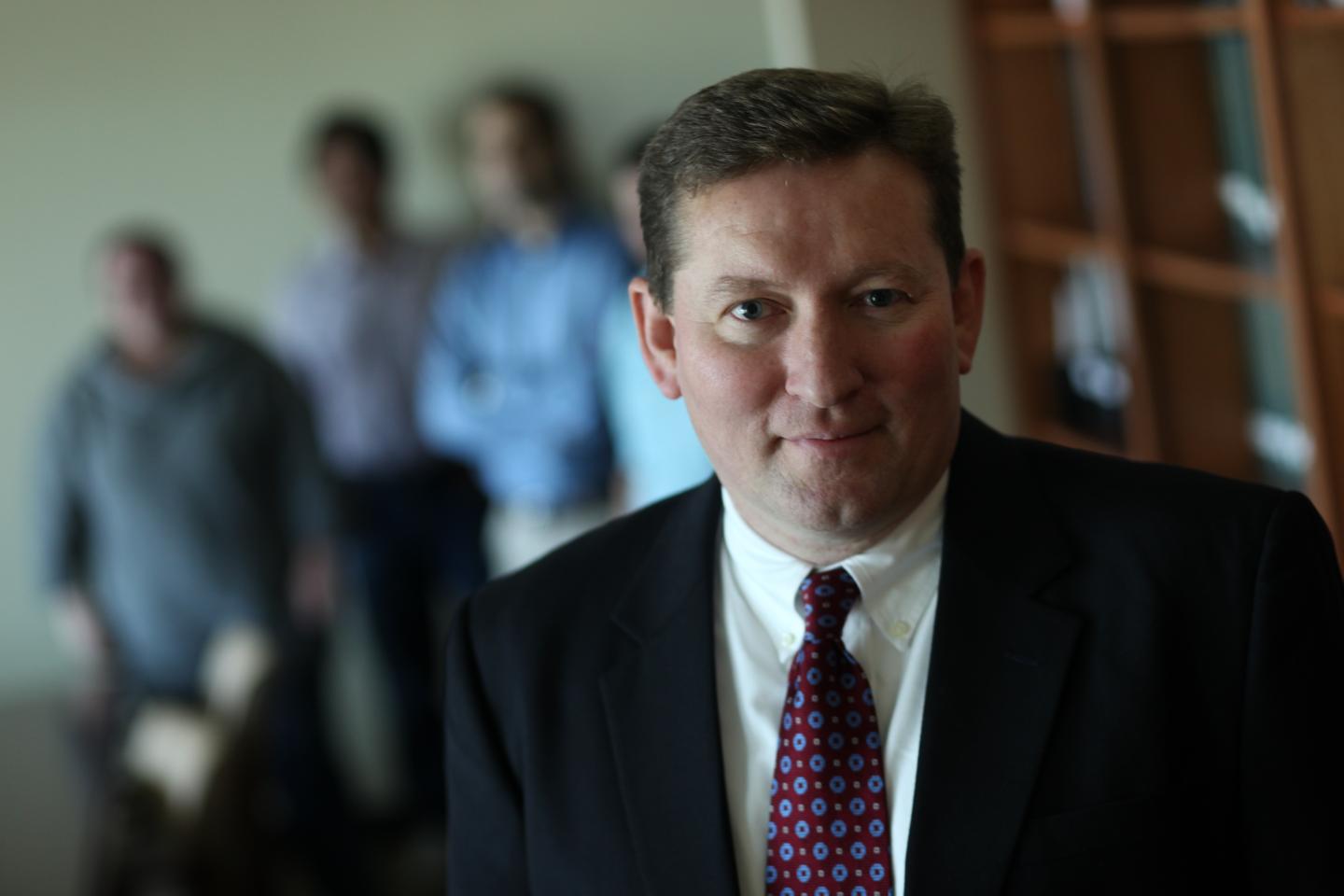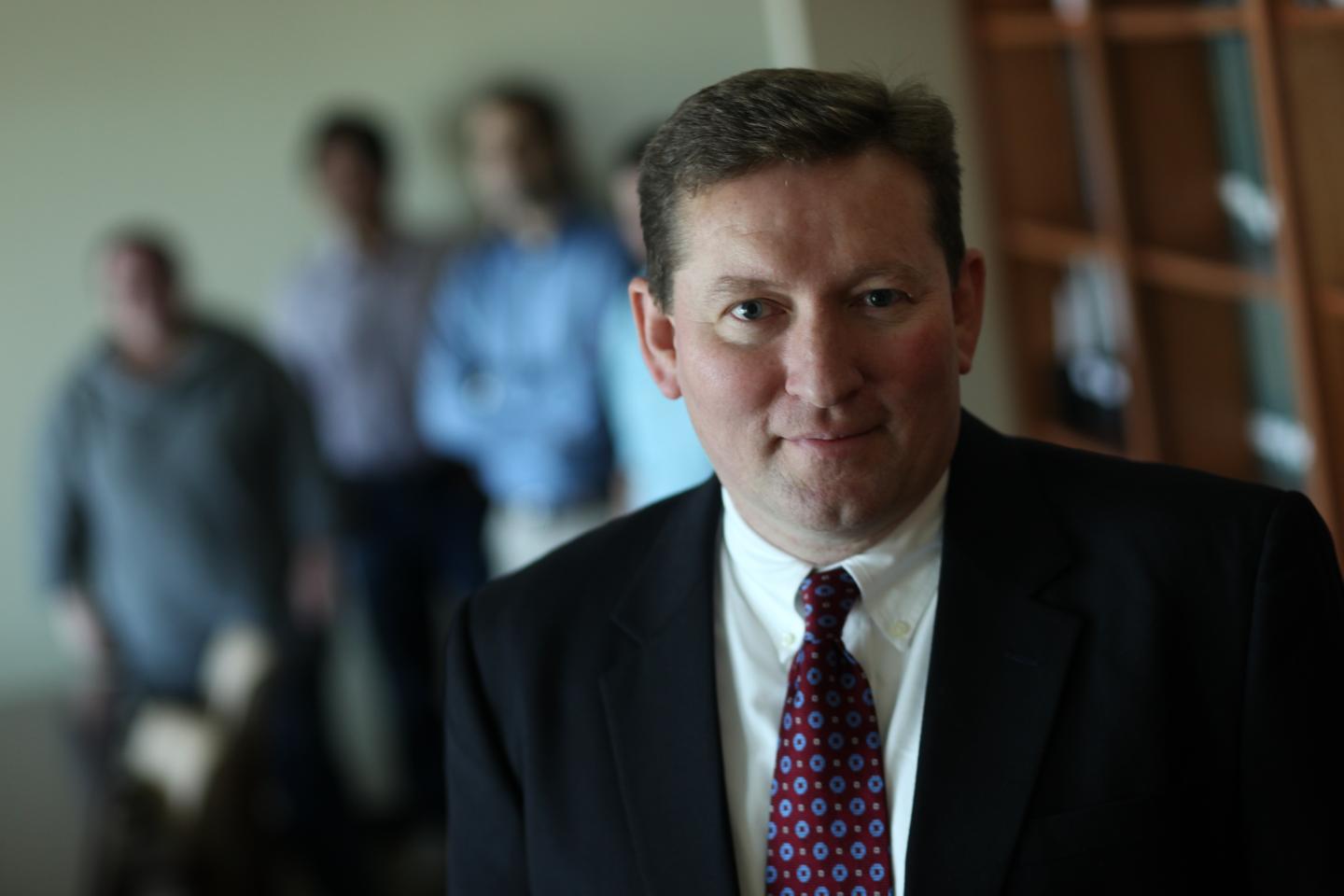
Credit: Baylor University
WACO, Texas (May 3, 2018) – Using an innovative initiative, Latin American researchers from academia, government agencies and businesses leaders identified priority research questions for the region to tackle pressing environmental quality issues.
In an article published recently in the journal of Integrated Environmental Assessment and Management, Bryan W. Brooks, Ph.D., Distinguished Professor of Environmental Science and Biomedical Studies and director of the environmental health science program at Baylor University, led the Global Horizon Scanning Project (GHSP), which focuses on identifying environment and health issues internationally. Brooks also facilitated GHSP workshops in Africa, Australia, Central and Southeastern Asia, Europe and North America.
"The GHSP was initiated to identify multidisciplinary scientific research needs that, if answered, would achieve more sustainable environmental quality around the world," Brooks said.
Tatiana Heid Furley, the study's first author and director of Aplysia Environmental Consulting in Brazil, said the GHSP was "an extremely important project because it offers the opportunity to prioritize environmental issues that need to be investigated and addressed in the short and medium-term future."
As part of the study, members of the Society of Environmental Toxicology and Chemistry's (SETAC) Latin America geographic unit, environmental scientists and engineers completed Internet-based surveys to identify the most pressing issues facing Latin America.
"The process was intentionally inclusive, bottom-up, multidisciplinary, multisector and transparent," Brooks said. "It is not one academic coming up with an idea. It is not one arm of government. It is not one business. It really is groupthink, which is needed across disciplines and sectors. It facilitates a healthy environment that allows people to think together."
At a workshop on Buenos Aires, Argentina, Brooks and his Latin American colleagues analyzed the survey responses, identified 20 priority research questions and organized them into six themes:
- Risk assessment
- Environmental chemistry
- Ecotoxicology
- Health, contaminants of emerging concern, and environment
- Spotlight on Latin America
- Environmental management and policy
The Latin American region "holds 40 percent of the world's biological diversity, 30 percent of the Earth's available freshwater and almost 50 percent of the world's tropical forests" making the GHSP execution and timing important, according to the article.
"This project is part of a larger effort to identify important international research needs. It is essentially, for the first time, a research roadmap towards achieving more sustainable environmental quality," Brooks said.
The GHSP project already has led to forward movement in South America, culminating with the announcement of significant grant funding for environmental research.
"In Brazil, the results of this project arrived at an excellent time," Heid Furley said. "The eighth World Water Forum was held March 22 in Brazil. Nineteen of the 20 priority issues raised by Latin American participants relate to water. A call for proposals was prepared based on the GHSP Latin America results and announced at the forum," Heid Furley said.
"We face palpable global environment and health challenges, which require innovative understanding, tools, products and systems to prevent, diagnose and manage adverse outcomes to public health and the environment. The GHSP is identifying timely research questions that are important to all of us," Brooks said.
###
ABOUT BAYLOR UNIVERSITY
Baylor University is a private Christian University and a nationally ranked research institution. The University provides a vibrant campus community for more than 17,000 students by blending interdisciplinary research with an international reputation for educational excellence and a faculty commitment to teaching and scholarship. Chartered in 1845 by the Republic of Texas through the efforts of Baptist pioneers, Baylor is the oldest continually operating University in Texas. Located in Waco, Baylor welcomes students from all 50 states and more than 80 countries to study a broad range of degrees among its 12 nationally recognized academic divisions.
ABOUT BAYLOR COLLEGE OF ARTS & SCIENCES
The College of Arts & Sciences is Baylor University's oldest and largest academic division, consisting of 25 academic departments and seven academic centers and institutes. The more than 5,000 courses taught in the College span topics from art and theatre to religion, philosophy, sociology and the natural sciences. Faculty conduct research around the world, and research on the undergraduate and graduate level is prevalent throughout all disciplines.
Media Contact
Tonya B. Hudson
[email protected]
254-710-4656
@baylor
http://www.baylor.edu
Original Source
https://www.baylor.edu/mediacommunications/news.php?action=story&story=198587 http://dx.doi.org/10.1002/ieam.2023





